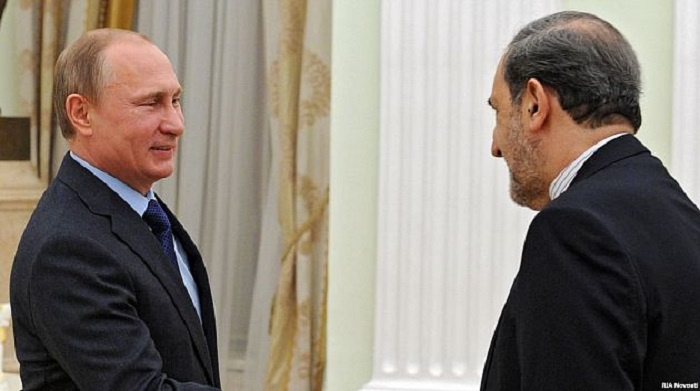The Message Velayati Took To Moscow

What is the significance of Mr. Velayati’s visit to Russia and his one-and-a-half hour meeting with Putin?
Mr. Velayati is the international advisor to the Supreme Leader and the head of the Center for Strategic Studies of the Expediency Council. Due to his political weight, he took a message from Mr. Rohani as his special envoy to Mr. Putin. It is certain that this message was of high importance. This message included the issues of Syria, Iran’s nuclear dossier, the expansion of economic ties between Iran and Russia, the S300 missiles and also Iran’s membership in the Shanghai Cooperation Organization. The significance of this message lies in the details of this message which are unknown.
Why has Russia agreed with Iran’s membership in the Shanghai Cooperation Organization?
The issue of the membership of some countries which had made requests is supposed to be discussed in the next meeting of the Shanghai Cooperation Organization. Putin has welcomed and expressed his agreement with Iran’s membership. But based on the rules of this organization, membership of any new country must be adopted by all members. Iran’s membership was proposed during past years but it was opposed by some countries. The interesting point is that Iran’s membership in this military-security-economic organization will bring certain commitments for Iran. In fact, Iran must accept the Shanghai commitments and the members of this organization will have certain commitments toward Iran.
Based on Iran’s constitution, Iran’s membership in any international organization must be adopted by the Islamic Consultative Assembly because Iran’s membership in a military-security organization will have consequences for the country. Following the Islamic Revolution, Iran attempted to distance itself from military pacts. Therefore, Iran’s membership in the Shanghai Organization will contradict this approach. This is while countries of the world attempt to move towards regional cooperation. Iran’s membership in the Shanghai Organization would be to our benefit because first there are territorial links and, second, this organization criticizes the US’ policies. Perhaps, new regional cooperation might form in this regard. Nevertheless, the commitments that this membership might bring for Iran would be an issue of discussion because China and Russia, as two powers, lead this organization. Iran must, thus, act in their shadow. Therefore, the issue of Iran’s interests in this matter must be carefully discussed.
Considering Russia’s record and policies regarding Iran, including its vote in favor of the Security Council’s sanctions against Iran and its delay in delivering the S300 missiles, could this country be a trustworthy ally in the Shanghai Cooperation Organization?
All countries act on the basis of their national interests, as Iran does the same regarding its relations with other countries. If cooperating with Iran contradicts Russia’s interests, this country will not cooperate. Second, there is special sensitivity in Iran with regard to Russia. Basically, no country other than Russia has helped Iran in military issues. It was Russia which sold missiles and military planes to Iran during the war. Russia’s refusal to deliver S300 missiles to Iran was based on the adoption of Resolution 1929 in the Security Council on which basis Medvedev, Russia’s President at the time, stated that he could not deliver these missiles due to the sanctions. This is while these missiles are used for defense only. This measure was only an excuse. Russia’s positive vote to sanctions resolutions against Iran in the Security Council was not intended to halt Iran’s nuclear program but to limit Iran’s enrichment capacity. The reason was that Russia did not want to lose Iran as its biggest client which buys its enriched uranium. One must act realistically toward Russia’s behavior. With regard to Iran’s oil and banking sanctions, Russia acted in a way with which the US was forced to find a way beyond the Security Council. On the other hand, when, based on Item 41 of Chapter 7 of the United Nation Charter, Iran’s issue was supposed to be treated just like the Iraq issue on the basis of Item 43, which would give an excuse for a military strike, Russia expressed its opposition to this proposal. Therefore, it can neither be said that Russia has betrayed Iran nor that it has supported it.

